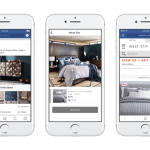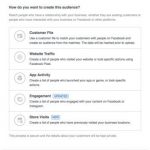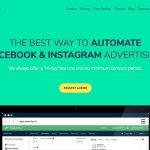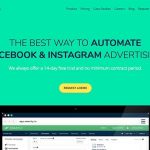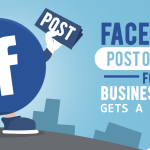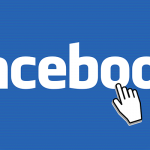How I Use Facebook Groups To Grow My Business
Eleven months after I started my own business, I found myself fully booked and in a position to pay myself a salary equal to what I was making as a VP at the marketing agency I’d left. And I owe virtually all that success to tapping the power of Facebook groups.
Before then, I used Facebook the way most people do—as a tool for keeping in touch with friends and family, sharing life updates, and taking a break from work. LinkedIn and Twitter, on the other hand, were my business development tools. That started to change when I signed up for a group coaching program for online entrepreneurs and was invited to the coach’s Facebook group.
I couldn’t have known at the time that Facebook would become the referral source for 95% of my new business leads and 85% of my current clients. Here’s how I made that happen.
Finding The Right Facebook Groups
Most Facebook groups I’ve come across for entrepreneurs are “private,” meaning you need to click a button to request access and wait for someone to approve you. Don’t be put off by that. Some groups might have a few baseline requirements for entry, usually by interest area, field, or identity, and others are dedicated to paid training. There are groups for women entrepreneurs, for instance, and others you’re asked to join when you sign up for a paid coaching program.
So while the first Facebook group I joined was the latter sort, I was soon emailed an invitation to join another after downloading an e-book on an entrepreneur’s site. For independent workers and “solopreneurs” like me, private Facebook groups offering exclusive content and networking are becoming more common. Watch for those mentions in any emails you receive from someone after downloading their free offer.
That’s not the only place to look, though. Facebook’s algorithm is good at suggesting groups you might like—you just need to get started. If you’re on the desktop browser version of Facebook, you’ll see suggested groups on the right sidebar when you’re already inside a group. That can be a good place to find other groups whose members have similar interests.
Amanda Goldman-Petri, founder of Market Like a Nerd, filled her business with one-on-one coaching clients just 30 days after she began actively participating in Facebook groups. And she says that within 90 days, she booked $120,000 in new business, 90% of which came from her own Facebook group.
Goldman-Petri has three important tips when it comes to finding the right group to build your own business:
- Don’t join a group run by a direct competitor in your space.
- Stick to groups with 500–10,000 members. This way it’s big enough to be worth your time, but not so big that you get lost in the shuffle.
- Make sure members in the group are actively engaged. If it’s simply a place where people drop in promotional posts and then leave, it isn’t worth your time.
What To Do Once You’re There
The biggest mistake I’ve made with Facebook groups is simply spending too much of my day posting and answering questions. You want people to notice you and engage with you, so you soon find yourself everywhere, all the time—not the most effective strategy.
When you’re inside a group, there’s a search box. Use that to search for keywords around your product or service. For example, I search things like “publicity,” “PR,” and “public speaking.” I try to stay in my lane, so to speak, and only engage on topics that are central to my business in order to effectively manage my time in the Facebook groups I’ve joined.
There are a few other guide rules I’ve given myself. I only actively participate in three groups outside of my own. In the beginning, I joined at least a dozen groups where I thought my ideal clients might hang out, and then I essentially tested them out to decide which got me the most bang for my buck.
Since you can’t tell much about a group until you’ve been approved to join, I start out by scrolling through the group’s main news feed right after I’m approved. That helps me get an initial feel for whether or not I was right about it being a good spot to find my ideal clients. For example, I once ended up in a group with perfectly lovely women, but the majority appeared to be involved in multilevel marketing. That’s not my ideal client, so I quietly left the group.
If I read through a dozen or so posts and think the group is a good fit, I’ll write a post introducing myself and my business and then gauge the response. If people leave positive comments and ask me questions, that’s a promising sign that it’s worth getting more engaged.
From there, I’ll search the group for my keywords and respond in a few threads. I’ll also start posting every few days about a topic related to my business and attempt to teach the audience something—or just provide some value however I can. For me, that might mean giving a few tips on the best places for people to find their first speaking gig.
The Results To Watch For
What happens after I start posting tips and answering questions in these Facebook groups? Sometimes it’s as simple as someone sending me a private message and saying that they saw my post and are interested in learning more about my services. Other times, they’re intrigued enough by my content to “like” my business page and then join my own group, where I can market to them more openly.
Either way, you’ll want to keep a lookout for hard results like these. As every business owner (not just marketer) knows, if you can’t ultimately turn engagement into revenue, it’s not worth much.
My business is 16 months old, and I’ve been booked solid with retainer clients since month 11, thanks in large part to my participation in Facebook groups. And it’s not just me who is seeing this kind of lead generation from this approach. Emily Hirsh, an online marketing strategist whose business is on track to do $250,000 in revenue this year, says 80% of her clients come from a wide range of Facebook groups where she maintains a presence.
But you don’t have to be an online entrepreneur to tap the power of Facebook groups. It’s fertile ground for a variety of independent consultants as well—including in local niches. Stephanie Melish, a certified business coach who often works with local clients, tells me she’s landed two coaching clients, a speaking engagement, and several business collaborations by participating in a Facebook group that focuses on women in the Charlotte, North Carolina, area.
“It allows me to build my credibility in my local marketplace and secure referrals,” says Melish. “For example, I was able to secure one of my coaching clients because they saw a post where someone had asked about local business coaches, and several other members had listed me in the comments.”
Having previously tried to generate leads through LinkedIn groups with absolutely no results, I was skeptical that Facebook would work any better. Less than a year later, I’m thrilled to have proven myself wrong.
Kristi A. Dosh is a publicist and the founder of Guide My Brand. Formerly a finance attorney, she is also a nationally recognized sports business analyst and a published author.
Related Video: Here’s Proof that Facebook’s Ad-Targeting Algorithm Isn’t Quite “Big Brother” Yet
Fast Company , Read Full Story
(13)



